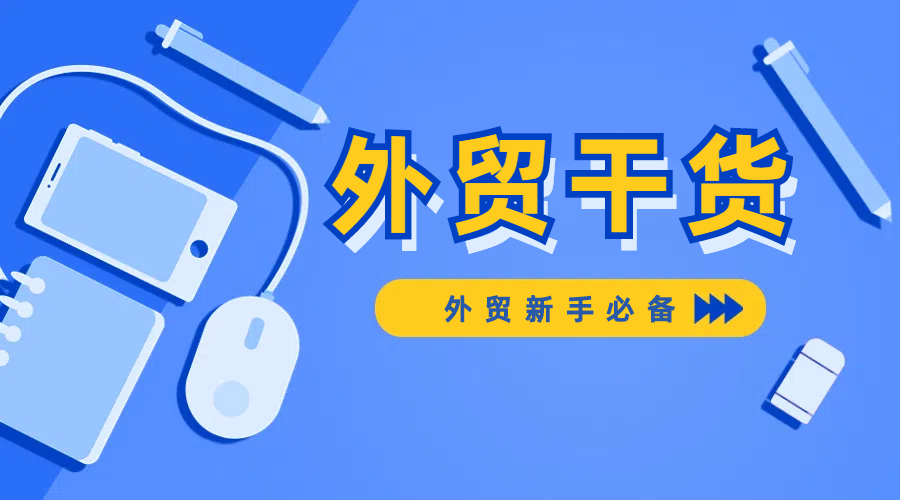 400-076-6558智领未来,外贸超级营销员
400-076-6558智领未来,外贸超级营销员
 400-076-6558智领未来,外贸超级营销员
400-076-6558智领未来,外贸超级营销员

Earning and maintaining the trust of global buyers is a key challenge for new exporters. Purchasing decision makers focus not only on product price, but also on reliability, timely communication and value. This article reveals some proven practical ways to cultivate these critical customer relationships, which are the cornerstone of sustainable international trade success.
Responding to buyer inquiries quickly (ideally within 12 hours) can significantly increase conversion rates. However, speed alone is not enough. Exporters must communicate using professional, warm and personalized language that is relevant to the buyer's needs and culture. According to a recent industry analysis, more than 70% of buyers ranked "effective communication" as the top factor that influences their continued cooperation with suppliers.
Active listening is also critical. Exporters should carefully note their clients’ preferences and concerns and provide thoughtful feedback rather than generalities. Demonstrating an understanding of their clients’ challenges and offering practical solutions lays the foundation for a reliable and informed relationship.
New exporters often struggle to stand out from established competitors. An effective strategy is to ensure that your products and services consistently meet or exceed buyers’ expectations. This can be achieved by providing value-added services, such as offering free samples for quality assessment or providing insightful market analysis reports relevant to the buyer’s industry.
Multiple surveys show that buyers are 40% more likely to maintain a relationship with suppliers who proactively provide value-added services. These initiatives demonstrate their commitment and positioning as partners rather than suppliers.

Keeping track of multiple aspects of your customers is essential. Using a customer management platform such as AB CRM , exporters can systematically record communication records, customer preferences, purchase history, and important dates such as holidays or contract renewals. This allows for effective and timely follow-up without having to rely solely on memory.
Regular communication with existing customers (ideally quarterly) helps identify emerging needs or concerns early on, fostering long-term loyalty. A well-maintained CRM system also enables customer segmentation, which allows mass communications to be tailored without sacrificing personalization—for example, sending holiday greetings that reflect each customer’s cultural background.
.png)
In addition to formal communication channels, being active on platforms such as LinkedIn or industry-specific social networks can highlight your company’s activities and insights while keeping a close eye on customer trends. Commenting thoughtfully on a buyer’s post or sharing personalized content can naturally enhance your company’s relationships and reputation with customers.
Suppliers that maintain active and relevant social media interactions have a 25% higher retention rate among global buyers, according to a 2023 study. As procurement teams increasingly conduct social media audits, social media interactions demonstrate transparency and responsiveness.
| strategy | Impact on Customer Retention |
|---|---|
| Timely and personalized communication | 70%+Buyer Preference |
| Provide value-added services | +40% Loyalty chance |
| Customer follow-up supported by CRM | Improve retention and reduce churn |
| Actively participate in social media | +25% Buyer Retention Rate |
From initial outreach to building a stable, long-term relationship requires continuous effort at all touch points. New exporters should view every interaction as an opportunity to solidify credibility, solve real problems, and create measurable value. Trust is earned gradually through reliable performance, empathetic communication, and thoughtful after-sales service.
By anchoring their approach to the outlined strategies, new exporters can build lasting, mutually beneficial customer relationships – minimizing churn and maximizing lifetime customer value.
.png?x-oss-process=image/resize,h_100,m_lfit/format,webp)
.png?x-oss-process=image/resize,h_100,m_lfit/format,webp)

.png?x-oss-process=image/resize,h_100,m_lfit/format,webp)
.png?x-oss-process=image/resize,h_100,m_lfit/format,webp)
.png?x-oss-process=image/resize,h_100,m_lfit/format,webp)
.png?x-oss-process=image/resize,h_100,m_lfit/format,webp)
